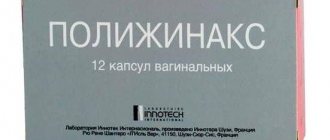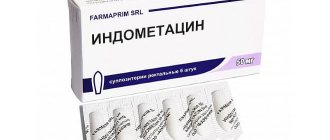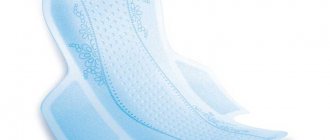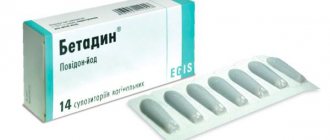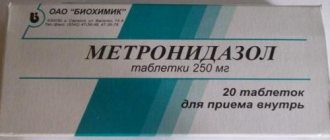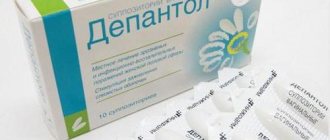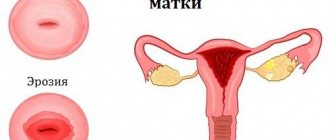Suppositories for ovarian inflammation are most often prescribed by a gynecologist. However, not all patients know the types and purposes of suppositories. Inflammation of the ovaries (oophoritis) and appendages (salpingoophoritis) is caused by bacteria, viruses or fungi. The treatment method is complex and includes getting rid of the source of infection, relieving inflammation, relieving pain, restoring flora, and preventing the occurrence of adhesions.
Suppositories play an important role in treatment for inflammation of the ovaries.
What is better to use for inflammation: suppositories or injections?
To treat inflammatory processes occurring in the appendages, injections, tablets and suppositories are used. If we compare injections and suppositories, both forms of the drug will have advantages and disadvantages:
- suppositories are more convenient than injections,
- intravenous injections are absorbed into the blood faster,
- suppositories have a direct effect on the uterus and ovaries,
- injections cause pain when used, but suppositories do not,
- To give an injection you will need the help of a doctor, but you can administer the suppository yourself,
- the risk of complications when using suppositories is lower,
- The active ingredient of the suppositories does not enter the intestines or stomach and has a local effect.
Doctors believe that one of the main positive qualities of suppositories is that when prescribing alternative forms of medicines, the additional use of suppositories is still recommended for inflammation of the ovaries in women.
Reviews
Meshchenko Vera Anatolyevna, 35 years old, Moscow After reading a lot of positive reviews, I decided to try Terzhinan suppositories for inflammation of the ovaries. The effect did not take long to arrive. After just a few days, the itching stopped and the discharge returned to normal. After completing the course of treatment, I visited a gynecologist and made sure that the inflammation had passed. Now I recommend to all my friends to use Terzhinan suppositories for adnexitis. Labutenko Irina Nikolaevna, 28 years old, Vladivostok I went to the doctor when a burning sensation in the intimate area began to bother me and unpleasant discharge appeared. The gynecologist diagnosed ovarian inflammation and prescribed comprehensive treatment for the pathology. Methyluracil suppositories helped me a lot with adnexitis. They not only relieved inflammation, but also increased the local immunity of the vagina. After using them, the pain, itching, and burning went away. Thrush is a much less common concern.
The main advantages of suppositories
The advantages of gynecological suppositories are obvious. Such drugs are prescribed to all women for the treatment of ovarian inflammation, unless there are contraindications for this. The benefits of candles include:
- direct effect on the pathogen,
- quick result,
- simple application,
- single use during the day,
- no negative effect on the liver and stomach,
- minimal risk of side effects,
- a small list of contraindications,
- the possibility of using certain types during pregnancy and lactation.
Indications for the use of suppositories
For oophoritis, suppositories are prescribed to relieve the symptoms of the disease, to eliminate the cause and restore the function of the pelvic organs. Indications for treatment of the inflammatory process will include:
- pain in the lower abdomen (unilateral or bilateral),
- vaginal discharge that is yellowish-green or purulent,
- increased body temperature caused by infection of the appendages,
- pain that occurs during sexual intercourse,
- menstrual irregularities, heavy bleeding.
Depending on the nature of the pathology, the symptoms of inflammation can be obvious or blurred. The chronic form of inflammation is accompanied by periodic relapses with increased clinical manifestations.
Why do the ovaries become inflamed?
Adnexitis, oophoritis, colpitis, salpingitis are diseases in which the ovaries and fallopian tubes become inflamed. All these pathologies must be treated, because they can lead to infertility and hormonal imbalances.
There are many reasons for inflammation:
- Hypothermia . The female genital organs are vulnerable to temperature changes and often an inflammatory process occurs as a result of freezing. Cold weakens the body's defenses, increasing the risk of pathogen growth.
- Infectious diseases . Many gynecological diseases of an infectious nature cause inflammation.
- Complications after sexually transmitted diseases. If chlamydia, trichomoniasis, gonorrhea, candidiasis and other pathologies are not treated, complications arise.
- Abortion is an artificial termination of pregnancy, in which the fetus is scraped out of the uterus with special instruments. They damage the epithelium and form a wound inside, which causes inflammation and pain. After an abortion, the doctor prescribes antibiotics and suppositories to disinfect and heal the walls of the uterus.
- Taking some medications changes hormonal levels and because of this, the microflora is disrupted. As a result, the occurrence of one or another inflammatory disease.
Contraindications and possible adverse reactions
The use of suppositories for inflammation of the appendages and ovaries is unacceptable if the patient has an allergic reaction to the constituent components.
It may arise unexpectedly. If, after administration of the suppository, there is a strong burning sensation, swelling, rash in the perineum or other area of the skin, it is necessary to discuss the possibility of further use of the drug with a gynecologist. Medicines containing antibacterial substances and hormones are considered unsafe in the early stages of pregnancy. Certain groups of medications are not used during lactation. NSAIDs in the form of suppositories cannot be used to treat inflammation of the ovaries if a woman has blood diseases, a tendency to bleeding, or vascular pathologies.
If the mucous walls of the vagina are damaged, then the use of vaginal suppositories is not recommended. A careless hand movement can injure the eroded surface. This will cause pain and bleeding. For pathologies of the vaginal walls, it is advisable to replace suppositories with baths, irrigation, or use rectal products.
Topical medications rarely cause side effects. The most common reaction is considered to be an allergy. Also, medications can affect the functioning of the digestive tract, increase vaginal discharge and even cause an increase in body temperature.
Prevention of inflammation of the appendages in women
If from childhood a girl is taught to keep her lower back and the entire pelvic area warm, not allowing her to sit in the cold, dress warmly, observe the rules of hygiene, and refrain from spontaneous falling in love, she is not afraid of chronic adnexitis, and therefore she will not have to torment her body with such dangerous drugs. When she gets older, her established habits will not change. And if it’s damp and cold outside, if there are drafts in the classroom, if the air conditioner in the workplace blows in the back, she will definitely wear an elastic warming belt under her dress. The fine knitting of such a product will not in any way interfere with the slimness of the figure; on the contrary, it will help maintain posture, relieve tension from the back muscles and take on part of the load that falls on the spine.
And in order not to make any mistakes, she will definitely consult a doctor and undergo an examination to exclude a tendency to neoplasms, for example. The doctor will advise which belt is best to buy and where. There are a lot of places where such products are sold, but the quality of the products is not the same everywhere. The camel medical belt “LEONARDA” is usually recommended, which can be purchased in Russian pharmacies or ordered on the website Apteka.ru. In the latter case, free delivery is guaranteed to the pharmacy that is closer to home and indicated by the buyer.
Why can’t you buy a belt, for example, on the market? Isn't it just as therapeutic? No, not the same, although the seller may position it that way. However, the manufacturer must have a registration certificate from Roszdravnadzor
to claim that its products are medical grade. If such a document is missing, this is an ordinary consumer product, and selling it as a preventive or therapeutic product is prohibited by Russian legislation. Even certificates from Rostest or SES will not add any rights to the title of medical, since these documents are not related to medicine. Yarn and elastic fabric “LEONARDA” have patents (No. 2289643, No. 2319800), and products made from them have a registration certificate of Roszdravnadzor No. FSR 2010/08307. That is why they have the opportunity to be sold in pharmacies, where the consumer is not deceived and thereby does not violate the law.
How suppositories work
Vaginal suppositories, after administration, quickly dissolve under the influence of body temperature and are absorbed through the mucous membranes. The active component penetrates the uterus, enters the blood and works in the ovaries:
- antimicrobial drugs eliminate existing pathogenic bacteria and prevent the appearance of new colonies,
- microflora products populate the vagina with beneficial bacteria, which become protectors of the body,
- Medicines to stimulate the immune system increase the resistance of the mucous membranes to infectious agents.
Rules for using candles
It is important to use suppositories correctly against inflammation. Otherwise, they will do more harm than good. The rule for administering suppositories involves following the following algorithm:
- urinate and wash yourself,
- wash your hands with soap, wipe with an alcohol wipe or wear sterile gloves (dirty hands can introduce additional infection into the vagina),
- take a comfortable position (put your foot on a chair, squat down or lie on the couch with your legs spread),
- open the candle immediately before administration (the use of Terzhinan tablets requires preliminary wetting under running water),
- insert the drug into the vagina, pushing it deeper with your finger,
- lie down for a quarter of an hour until the medicine dissolves and begins to act.
Immediately after using the medication, you should not douche, wash your face, go to the toilet or have sex.
Most vaginal products are not used during menstrual bleeding. The treatment period should be selected so as not to interrupt the administration of antibacterial drugs. Unlike other types of candles, they must be used regularly for a set period of time.
Treatment rules
There are two types of suppositories: vaginal and rectal.
Rectal ones are inserted into the rectum, vaginal ones into the vagina.
Before using any candles, you should read the instructions.
The use of these products requires compliance with hygiene rules and a certain algorithm:
- Before use, you must empty your bladder (or bowels, if the suppository is rectal),
- Wash and dry your hands,
- Carry out hygiene and wipe the perineum dry,
- Wear sterile gloves and take a comfortable position (lying down),
- Administer the drug.
Candles are usually used once a day in the evening. After administering the suppository, you must lie down for at least 15 minutes (until the product dissolves). Immediately after using the candle it is prohibited:
- Swim again
- To take a bath,
- Insert another candle
- Sexual contact and douching are also prohibited.
REFERENCE. Vaginal suppositories should not be used during menstruation. You should inform your doctor about menstruation and replace the product with a rectal or systemic one.
Useful video on the topic:
What types of suppositories are there?
Medicines for the treatment of acute and chronic adnexitis are rectal and vaginal. There are suppositories, the composition of which allows both options for administration. All drugs are divided into three types:
- Aimed at eliminating the causes of the disease (anti-inflammatory, antibacterial, antiviral, antifungal).
- Symptomatic action (painkillers, anti-edema, antipyretics).
- Combined (have a multifaceted effect, often containing several active components).
Names of drugs and their descriptions
The name of suppositories for the treatment of oophoritis (inflammatory process in the paired sex glands) is determined by the doctor based on the diagnostic results. For treatment to be effective, it is necessary to identify the causative agent of the disease. With the help of bacteriological testing, the sensitivity of the antigen in relation to the active substance of the drug is established.
Therapy of the inflammatory process involves the use of several types of suppositories:
- antibacterial – to eliminate pathogenic and opportunistic microorganisms,
- antifungal – to prevent the proliferation of yeast-like fungi,
- anti-inflammatory – to eliminate the inflammatory process and relieve pain,
- probiotics and prebiotics – to normalize microflora,
- absorbable - to prevent the formation of adhesions.
Antibiotics for inflammation of the appendages
It is important to use antibacterial drugs for as long as the doctor prescribes. You should not interrupt treatment at the first signs of improvement, as this will cause the establishment of resistance in microorganisms, and in the future this drug will no longer help.
- Hexicon is a safe drug with low cost. Can be used during pregnancy. Prescribed for treatment or prophylaxis for a period of 1-2 weeks.
- Polygynax - eliminates not only bacteria, but also fungi. Used for 6 days for prevention or 12 days for treatment. Cannot be used in the second trimester and during breastfeeding.
- Clindacin is a highly effective and expensive medicine. Apply once a day for 3-5 days.
- Klion D – has a complex effect. The drug fights bacteria, fungi, and protozoa. Treatment lasts 10 days with a single use before bedtime.
- Terzhinan – has a complex effect. Can be used after the first trimester of pregnancy and during lactation. The treatment period is 10 days.
- Betadine is effective against bacteria, viruses and fungal pathogens. Has anti-inflammatory effect. Contraindicated if you are allergic to iodine.
Anti-inflammatory drugs
Anti-inflammatory suppositories in gynecology are used to treat ovaries. Unlike antimicrobial agents, they are administered rectally.
- Indomethacin is a strong anti-inflammatory drug. It has many contraindications, including pregnancy and breastfeeding. For diseases of the appendages, it is advisable to use Indomethacin to reduce pain and normalize body temperature.
- Diclofenac is a more common medication that has less negative effects on the body. It does not have as strong an effect as Indomethacin.
- Movalis is a less common anti-inflammatory drug. Prescribed when the use of Diclofenac and Indomethacin is unacceptable.
Candles for microflora
In order to restore the microflora, suppositories are used vaginally. The course of use begins after completion of antibacterial treatment.
Due to the fact that antimicrobial drugs are capable of destroying not only pathogenic, but also beneficial microorganisms, the likelihood of dysbiosis appears. Beneficial bacteria introduced directly into the vagina helps prevent this condition. Among the popular drugs:
- Bifidumbacterin,
- Acylact,
- Lactonorm,
- Vaginorm-S.
To prevent adhesions
When the appendages become inflamed, mucus forms in the abdominal cavity, which can stick the organs together.
This condition is fraught with unpleasant manifestations: pain, discomfort, disruption of the functioning of the intestines and bladder, infertility. Therefore, suppositories are prescribed to prevent adhesions. Their use will be especially relevant in the chronic course of the pathology.
A popular and effective absorbable agent is Longidaza. Suppositories are administered rectally once a day, after which a three-day break is taken. A course requires 10 suppositories.
Suppositories for ovarian inflammation: vaginal, rectal – An intimate question
For the treatment and prevention of female diseases in gynecology, anti-inflammatory suppositories are used intravaginally (introduced into the vagina) or rectally (into the rectum).
Anti-inflammatory suppositories in gynecology are administered vaginally or rectally
Advantages of treating gynecological diseases with suppositories
Medicines in the form of suppositories have an oblong shape, which ensures their convenient and painless administration. The basis of topical preparations is fats or gelatin-glycerin gels, the pharmacological activity of which is manifested under the influence of body temperature.
The prerogatives of using suppositories before tablet medications include:
- the speed of penetration of the drug to the source of inflammation accelerates the achievement of a therapeutic effect;
- maximum resorption (absorption) of the active component into the systemic circulation ensures high quality of treatment;
- the absence of direct contact with the digestive organs minimizes the risk of side effects from the gastrointestinal tract (gastrointestinal tract) and the manifestation of large-scale allergic reactions.
Indications for the use of anti-inflammatory suppositories in gynecology
In case of suspected female inflammation, the gynecologist takes a smear from the genital organs for bacteriological culture and microflora, and prescribes a number of tests:
List of diseases of the female genitourinary system for the treatment of which suppositories are used:
- inflammation of the vaginal mucosa – vaginitis or colpitis;
- synchronous inflammatory process of the vagina and external genitalia – vulvovaginitis;
- defects of the cervical epithelium - erosion;
- inflammation of the ovaries - oophoritis;
- violation of vaginal microflora - dysbacteriosis;
- inflammation of the walls of the bladder or urethra (cystitis or urethritis);
- inflammatory disease of the mucous membrane of the cervical canal of the cervix - endocervicitis;
- fungal infection - thrush (candidiasis);
- inflammation of the ovaries and fallopian tubes – adnexitis;
- pathological proliferation of cells in the inner layer of the uterus (endometrium) – endometriosis;
- benign neoplasm of the uterus - fibroids;
- inflammatory lesion of the endometrium – endometritis.
The prophylactic purpose of a suppository is to prevent possible complications after operations. To accelerate the regeneration of damaged tissue, suppositories are used after non-medical abortion.
List of suppositories with anti-inflammatory effects
To relieve inflammation of the female genital organs, suppositories are selected taking into account the etiology (origin) of the disease. For thrush, suppositories with an antifungicidal (antifungal) component are prescribed.
For intense pain, use painkillers with lidocaine or diclofenac. In the case of infectious diseases - with antimicrobial and antiseptic substances.
Vaginal medicines with herbal extracts (aloe, belladonna, chamomile) will help with a common cold like a woman.
According to the method of administration, therapy may include one vaginal or one rectal drug, or be based on their combined use.
Local medications are available in pharmacies without a prescription and are accompanied by instructions for proper use.
Patients are recommended:
- perform hand hygiene;
- moisten the candle with water or lubricate it with Vaseline (if insertion is difficult).
- insert the vaginal medicine in a horizontal position of the body on the back to the maximum depth;
- Insert suppositories into the rectum while lying on your side, with your legs tucked to your chest;
- After administration, remain in a lying position for a quarter of an hour.
Empty your bowels before using rectal suppositories.
Vaginal drugs with anti-inflammatory effects
The list of the best topical medications includes:
- Syntomycin suppositories. An inexpensive medicine made on the basis of the broad-spectrum antibiotic chloramphenicol. Has a pronounced antimicrobial property. Prescribed for the inflammatory process caused by the activity of gram-positive and gram-negative bacteria. Depending on the severity of the infection, 2 to 4 suppositories are used daily. Treatment takes a week.
Synthomycin suppositories have an antimicrobial effect
Contraindicated during the perinatal and lactation periods, with thrush and psoriasis.
Pharmacy cost – 100 rubles.
- Hexicon. The active substance, chlorhexidine digluconate, has an antiseptic, antimicrobial, and antipruritic effect. Used for the prevention and complex treatment of sexually transmitted infections (gonorrhea, syphilis, trichomoniasis, chlamydia, ureaplasmosis). For therapeutic purposes, it is administered 2 times a day for 10 days. As a preventive measure against hidden sexually transmitted infections, it is recommended to administer 1 suppository after unprotected intimate contact.
Hexicon has an antipruritic effect
Do not use if you are hypersensitive to the active substance.
Price – 260 rub.
- Depanthol. The effect of the drug is due to its components: the antiseptic substance chlorhexidine, and a derivative of vitamin B5 - dexpanthenol. Used in the treatment of endocervicitis, acute and chronic colpitis, complex therapy of cervical erosion. The recommended dose is 1 suppository 2 times a day. Course therapy takes 7-10 days.
Depanthol contains vitamin B and chlorhexidine
Contraindicated in case of individual allergies to substances included in the composition.
The cost of 1 package with a chamomile image on the package is 560 rubles.
- Terzhinan. A combined drug containing:
- antiprotozoal ternidazole;
- aminoglycoside antibiotic neomycin;
- antifungal nystatin;
- synthetic glucocorticoid hormone prednisolone.
Terzhinan contains an antifungal agent
It is practiced for bacterial inflammation of the cervical canal and cervix, for trichomonas colpitis, candidiasis, and vaginal dysbiosis. Use once a day for 10-12 days.
Contraindication – individual intolerance to the components.
The price of 10 suppositories is 530 rubles, 6 pcs. can be purchased for 450 rubles.
- Polygynax. A drug based on nystatin with antibiotics neomycinin and polymyxin B. It has an antifungal and antibacterial effect, effectively relieves itching and inflammation. Indicated for vaginitis of any etiology in a dosage of 1 time/day. The course of treatment lasts from 6 to 12 days.
Polygynax has an antibacterial effect
Do not use during the perinatal and lactation period and in the presence of allergies to the substances in the medication.
12 candles cost 600 rubles.
- Klion-D. Effective antiprotozoal and antimicrobial suppositories made on the basis of metronidazole and miconazole. They have an antipruritic effect. Prescribed for thrush, and in complex therapy of trichomoniasis. The standard treatment regimen is 1 time/day, for 10 days. In severe cases of the disease, the dose is increased.
Klion-D - suppositories for thrush based on metronidazole
Contraindicated for women during pregnancy and lactation, with liver pathologies and diseases of the central nervous system.
Estimated cost – 350 rubles.
Suppositories for rectal and vaginal use
Good anti-inflammatory drugs that can be administered intravaginally and into the rectum:
- Suporon. Homeopathic vaginal preparation containing natural ingredients:
- healing mud from Lake Tambukan (Russia);
- ginseng and eleutherococcus root extracts;
- bee propolis;
- buckwheat pollen and honey.
Suporon - vaginal preparation based on bee propolis
Has an analgesic effect. Practiced for pain in the ovaries caused by adnexitis, cervical erosion, endometritis, vaginitis. Used in the complex treatment of fibroids. The course of treatment takes up to 30 days with the administration of 1-2 suppositories daily.
Contraindicated in case of allergic reactions to bee products.
Average price – 330 rubles.
- Methyluracil suppositories (Methyluracil). Cheap suppositories are made on the basis of the substance of the same name (chemical name - dioxomethyltetrahydropyrimidine). Has healing and anti-adhesive properties. In gynecology, it is used for erosions, non-bacterial colpitis, inflammation of the appendages, after abortions and surgical removal of uterine polyps. Can be used up to 4 times a day. The treatment is long-term, the course is selected individually.
Methyluracil suppositories have healing properties
The use of Methyluracil for leukemia is excluded.
The price of the medicine does not exceed 75 rubles.
The use of vaginal suppositories in the first seven days of the follicular phase of the menstrual cycle (the period of bleeding) depends on the composition of the drug. Each individual case requires consultation with a gynecologist.
Anti-inflammatory rectal suppositories
Topical medications intended for rectal administration have a wide range of applications. In gynecology they are used for acute and chronic inflammation of non-infectious origin.
Examples of drugs:
- Diclofenac . Produced on the basis of sodium diclofenac. A strong anti-inflammatory non-steroidal drug with a pronounced analgesic effect. Practiced for adnexitis, inflammatory diseases accompanied by acute pain. The maximum daily dose is 3 suppositories. The duration of therapy is determined by the gynecologist.
Diclofenac - rectal anti-inflammatory suppositories
Contraindications:
- bronchial asthma;
- heart failure;
- pathologies of the liver and kidneys in the stage of decompensation;
- allergy to sodium diclofenac.
The cost of 10 suppositories fluctuates around 100 rubles.
- Betiol . The medicine contains the antiseptic substance ichthammol in combination with belladonna. It has a local anesthetic and anti-inflammatory effect. In gynecology, they are effective against inflammation of the ovaries, in the complex therapy of endometritis and endometriosis. The course of treatment is designed for 7-10 days, with the daily administration of 3-4 suppositories. For severe pain, the dose is doubled.
Betiol - suppositories for ovarian inflammation
Betiol suppositories are not prescribed for chronically elevated eye pressure, allergies to belladonna or ichthammol, or for underage girls.
Price – 90 rub.
- Ichthyols (Ichthyol) . The active ingredient - ichthammol - helps eliminate inflammation and effectively relieves pain. Used for adnexitis, oophoritis, endometriosis, and as an auxiliary treatment for fibroids. 1-2 suppositories are administered daily. The duration of therapy is determined by the gynecologist.
Ichthyol suppositories relieve pain
Contraindicated in case of hypersensitivity to ichthammol.
Pharmacy cost – 80 rubles.
- Sanitazol-R . They produce 2 types of medicinal suppositories: for morning and evening administration. Morning suppositories include extracts of bergenia and ziziphora roots, and cocoa butter. They have an analgesic and healing effect. The evening version of the drug is made on the basis of the herbs chamomile, ziziphora and cocklebur with the addition of cocoa butter. Promotes tissue regeneration, relieves inflammation, reduces pain, and prevents infections. Prescribed for inflammation of the appendages and other pelvic organs, for erosions and in the postoperative period. The course of treatment is from 6 to 12 days.
Source: https://mjk1.ru/zabolevaniya/svechi-ot-vospaleniya-yaichnikov-vaginalnye-rektalnye.html
